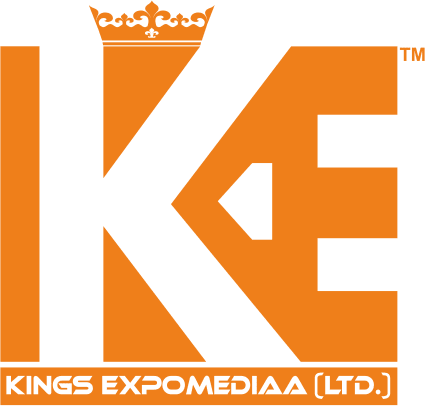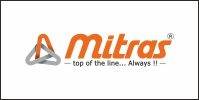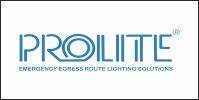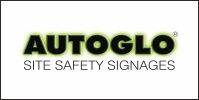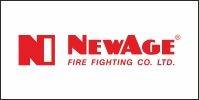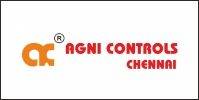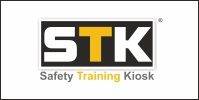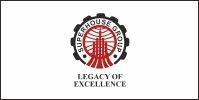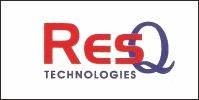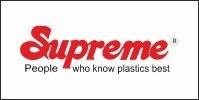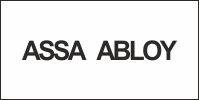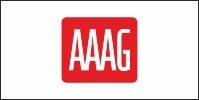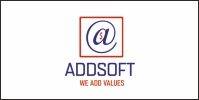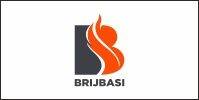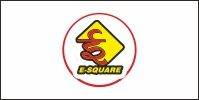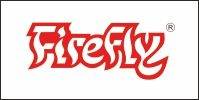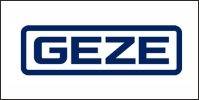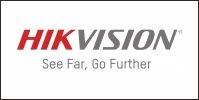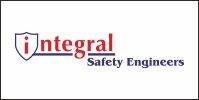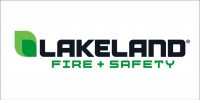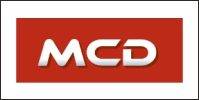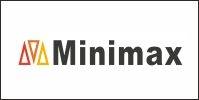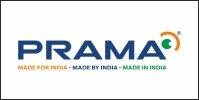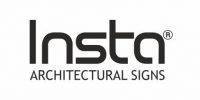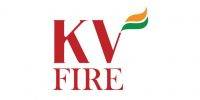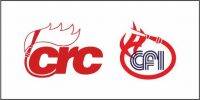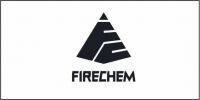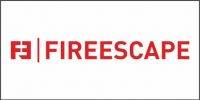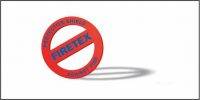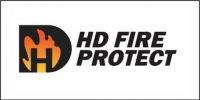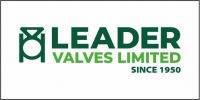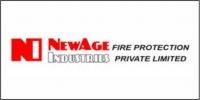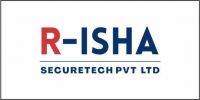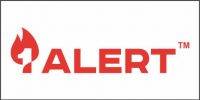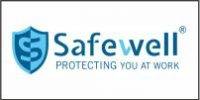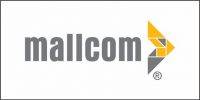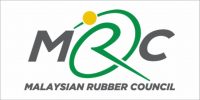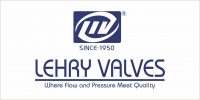 Ensuring that employees are safe at work must be a high priority for all organizations, regardless of industry. Most incidents in the workplace can be prevented if the correct level of protection is provided. Protective footwear is just one of the most common types of Personal Protective Equipment (PPE) and an important part of self-protection in the workplace.
Ensuring that employees are safe at work must be a high priority for all organizations, regardless of industry. Most incidents in the workplace can be prevented if the correct level of protection is provided. Protective footwear is just one of the most common types of Personal Protective Equipment (PPE) and an important part of self-protection in the workplace.
Incidents relating to feet and legs can range from a blister due to ill-fitting work boots, to heavy objects falling onto the feet. The correct safety footwear whether it be for a construction worker, a motorcyclist or a fireman, is vital to ensure that feet are adequately protected and includes. Keeping feet at the right temperature is another consideration, particularly in extreme environments or when working outdoors. There is an ever-rising need for organizations to comply with health and safety regulations; therefore, professionals need to explore the use of PPE. However, with so many different types of protective footwear on the market – each with its own use and application, how do organizations invest in the right protection?
What is PPE?
PPE encompasses hundreds of products that stretch from head to toe, from protective clothing, helmets, hearing and respiratory protection to body armour and boots. From a legal and regulatory perspective, PPE is defined more specifically as:
- Equipment designed and manufactured to be worn or held by a person for protection against one or more risks to that person’s health or safety
- Interchangeable components for equipment referred to in point (a) that are essential for its protective function
- Connection systems for equipment referred to in point (a) that are not held or worn by a person, that are designed to connect that equipment to an external device or to a reliable anchorage point, that are not designed to be permanently fixed, and that do not require fastening works before use.
PPE Global Regulation:
Across the globe the regulatory requirements vary dependent on the Geographical location.
- CE and UKCA marking
- ESMA
- Australia & New Zealand (ANZ)
CE and UKCA marking regulatory requirements
To keep employees safe in the workplace and reduce health risks, protective footwear has to comply with all the requirements of the PPE Regulation and carry the CE marking to be sold legally in the EU or the UKCA mark to be sold within the UK.
Footwear is generally classified as Category II PPE, however when protection from higher risks such as, but not limited to electrical or molten metal then the footwear is classified as Complex PPE, Category III. This means that in addition to satisfying the higher level requirements of the PPE Regulation and standard, the manufacturer must also demonstrate annually to a Notified/Approved Body such as BSI, that the product continues to comply with the requirements of the standard it was initially tested against.
A Notified/Approved Body is an independent organization designated by an EU country or UK to assess the conformity of certain products before being placed on the market. These bodies carry out tasks related to conformity assessment procedures set out in the applicable EU/UK legislation, when a third party is required. The same is a basis commonly accepted outside UK also by end customers, AHJ’s and Regulators.
There is an ever-rising need for organizations to comply with health and safety regulations; therefore, professionals need to explore the use of PPE. However, with a variety of protective footwear on the market – each with its own use and application, how do organizations invest in the right protection? Understanding the PPE Regulation (EU) 2016/425 and associated standards such as BS EN ISO 20345 can offer some help, in order to make the right choices of protective footwear.
Footwear requires mandatory CE and UKCA certification under the PPE Regulation (EU) 2016/425.
There are many different types on the market – each with its own use and specific application. The PPE Regulation groups all products into three main categories depending on the level of risk in the workplace.
Category I: Simple
Minimal risks are present, and employees can identify and assess the level of protection that the product offers. Such risks might include superficial mechanical injury, contact with hot surfaces not exceeding 50°C and atmospheric conditions that are not of an extreme nature. In order to fall into this category, products must comply with the Essential Health and Safety requirements and bear the CE marking or UKCA marking through the manufacturing self- certification route.
Category II: Intermediate
Neither complex nor simple, products in this category should be certified by a Notified Body/Approved Body, to prove that they meet the technical requirements of the PPE Regulation’s relevant specifications.
Category III: Complex
PPE in this category is designed to protect workers against dangers that could cause serious harm to their health and in some instances, death. These products safeguard employees against electrical risks, dangerous voltages and provide insulation during high-tension work. To meet the requirements of this category, manufacturers not only need to get their products certified by an accredited body, but also undergo constant surveillance. Their chosen accredited body will select and test samples to ensure all products meet the required standards.
The majority of footwear falls within category II or III and therefore require EU Type Examination and if complex, on-going surveillance too.
How can you tell if foot protection is up to standard?
Specifiers and purchasers of PPE can derive a measure of reassurance about the quality and safety of products from the presence of the ‘CE’ mark and ‘UKCA’ mark.
To keep employees safe in the workplace and reduce health risks, protective footwear has to comply with all the requirements of the PPE Regulation and carry the CE mark to be sold legally in the EU and the UKCA mark from 1 January 2023.
– UKCA marking
Following the UK’s departure from the EU on 31 January 2020, the UK introduced United Kingdom Conformity Assessed marking, known as UKCA marking. This replaces the CE mark on some products placed on the market in Great Britain.
Existing CE product marking is acceptable for products already on the market, however products sold in Great Britain from 1 January 2023 will require UKCA marking. The exception to this is manufacturers in Northern Ireland who will still be able to place products on the market in Great Britain with CE marking following this deadline. Placing products in Northern Ireland will differ because the CE mark or the UKNI mark will be required.
As an Approved Body, BSI can work with organizations on the required conformity assessment procedures that will allow them to affix the UKCA marking on to the following products:
- Construction Products submitted to the Construction Products Regulation (CPR)
- Personal Protective Equipment (PPE)
- Gas appliances
- Pressure Equipment
- Lifts submitted to the Lift Directive
- Marine equipment
- Measuring instruments
- Radio equipment
- Medical Devices
There are roughly ten times fewer UK Approved Bodies who can provide the UKCA mark. Whilst not everyone will decide to sell their product in Great Britain, we expect a majority to do so, and thus there can be a build-up of work for these UK Approved Bodies.
Most products currently covered by CE marking will require the UKCA marking from 1 January 2023 and manufacturers hoping to place products in the GB market are being advised to act now to avoid disappointment.
– PPE in the European Union (EU)
When it comes to distributing PPE in the European Union (EU), all products that fall under the European Regulation must carry the CE mark. This is a legal requirement and means that manufacturers are allowed to do business in all 27 EU member states.
If a product bears the CE marking, it has been assessed against the essential safety performance criteria as specified in the EU Regulation. This mark also acts as the manufacturer’s confirmation that the product adheres to the specific requirements of all the Directives or Regulations that apply to it and that it can be sold legally in the EU.
The PPE Directive was previously focused only on manufacturers placing products onto the market, but the PPE Regulation means the whole supply chain is involved. This means importers, distributors or anyone involved in the supply and distribution chain should take appropriate measures to ensure that PPE meets standard requirements and that they make available on the market only products which comply with the Regulation, and keep relevant documents for at least 10 years.
BSI’s status as a Notified Body for many European Directives and Regulations enables it to offer third party testing and factory production control assessments to issue CE marks in the Netherlands. The level of involvement of BSI is determined by the Category the product falls under in the Regulation.
– ESMA
ESMA, Emirates Body for Standardization and Metrology, for provision of ECAS certification which is mandated throughout the Emirates (UAE). The ESMA certification schemes are implemented under Federal Law 28 and BSI are approved under the guidelines of the scheme to provide certification. Given Emirates’ standards are often adopted by neighboring countries such as Qatar, Oman, Kuwait and Saudi Arabia, it is also relevant for Middle Eastern markets outside the seven states that make up the UAE.
The scheme is divided into technical requirements and administrative requirements for the manufacturer and their authorized agent in the Middle East. The former are based on UAE standards and/or equivalent international and other standards (for example, European standards or ENs); the latter relate to conformity assessment procedures, documentation (for example, technical files), declarations of conformity and product information, product marking, manuals and instructions.
Australia & New Zealand (ANZ)
Access to Australia & New Zealand are regulated by AS/NZS standards namely AS/NZS 2161.2:2020 Occupational Protective Gloves, AS/NZS 2161.3:2020 Protection Gloves Against Mechanical Risks, AS/NZS 2161.4 Protection Gloves Against Thermal Risks, AS/NZS 2161.6 Protective Gloves for Structural Firefighting, AS/NZS 2161.10.1 Protective Gloves Against Chemical and Micro-Organisms.
BSI Benchmark scheme offers certification to various AS/NZS standards and various NFPA standards.
Standards and certification
Achieving certification to standards provide reassurance that protective gloves have met requirements that a standard identifies.
The cost of counterfeits
There are some excellent footwear protection products available on the market, however there are also numerous counterfeit and illegal products. Invariably, such fakes do not perform as they should, put employees’ lives at risk and expose their organization to prosecution.
From laboratory and to factory floor, PPE is vital to workplace wellbeing and it is imperative that it meets or exceeds health and safety standards. The new Regulation will help prevent companies from selling sub-standard PPE without being accountable. Under the new Regulation, any company importing or distributing PPE products will have to ensure they meet the Regulation and keep records.
Above and beyond standard footwear protection
The BSI Kitemark™ gives a higher level of assurance that a product will do what it claims. From a buyer’s perspective, it helps differentiate well-made PPE products from those of a lower standard – or indeed counterfeit goods.
Many manufacturers apply for Kitemark certification to make sure their products stand out from others. In order to achieve the Kitemark certification, a product must comply with the specified requirements of a publicly available standard, such as a British, European or International Standard, or PAS (Publicly Available Specification).
If a product has achieved the Kitemark, it has been through a testing process to ensure it meets the relevant standards and passes all the applicable requirements. This also involves the assessment of the factory’s quality management system against the ISO 9001 requirements. Once a licence has been issued, the manufacturer’s factory will be audited on a regular basis and products will be tested frequently to make sure they still comply with the specified requirements. Both the audit testing and factory assessments are above the minimum requirements specified for the Intermediate & Complex category in the PPE Regulation.
Manufacturers that achieve the Kitemark certification demonstrate their on-going commitment to deliver foot protection of the highest standards to the market.
Keeping employees safe at work may seem complicated, however by understanding what PPE is available and what to look for when it comes to foot protection, many incidents can be prevented. Certification to key product standards through CE marking and the BSI Kitemark can help PPE manufacturers clear regulatory hurdles, while differentiating their proven products from poor quality competitors and fakes. Most importantly, however, it will give the peace of mind to consumers and commercial buyers that the quality, safety and reliability of PPE products is guaranteed.
For more information on the PPE Regulation, please visit www.bsigroup.com
Tej Behara, Life Safety Head of Sales – Product Certification at BSI explores PPE (Personal Protective Equipment) and how to prevent injuries in the workplace.
About BSI Kitemark
- The BSI Kitemark is an independent mark of quality, helping procurers and end-users to differentiate reputable PPE products from those of a lower standard
- All products certified with the BSI Kitemark are rigorously tested to the latest standards. Regular batch or product audit testing is undertaken at BSI’s laboratories, and BSI assessors conduct regular factory audits to check quality during production
- The BSI Kitemark is voluntary, is only available from BSI, and gives end-users confidence in the performance and quality of the product
- A product that has earned the BSI Kitemark shows that, especially for Category III PPE, a manufacturer will be meeting all ongoing surveillance requirements under the existing Directive and the new PPE Regulation.
About BSI
BSI is the business improvement and standards company that enables organizations to turn standards of best practice into habits of excellence, ‘inspiring trust for a more resilient world’. For over a century BSI has driven best practice in organizations around the world. Working with over 77,500 clients across 195 countries, it is a truly global business with skills and experience across all sectors including automotive, aerospace, built environment, food and retail and healthcare. Through its expertise in Standards and Knowledge, Assurance Services, Regulatory Services and Consulting Services, BSI helps clients to improve their performance, grow sustainably, manage risk and ultimately become more resilient.
To learn more, please visit: www.bsigroup.com


